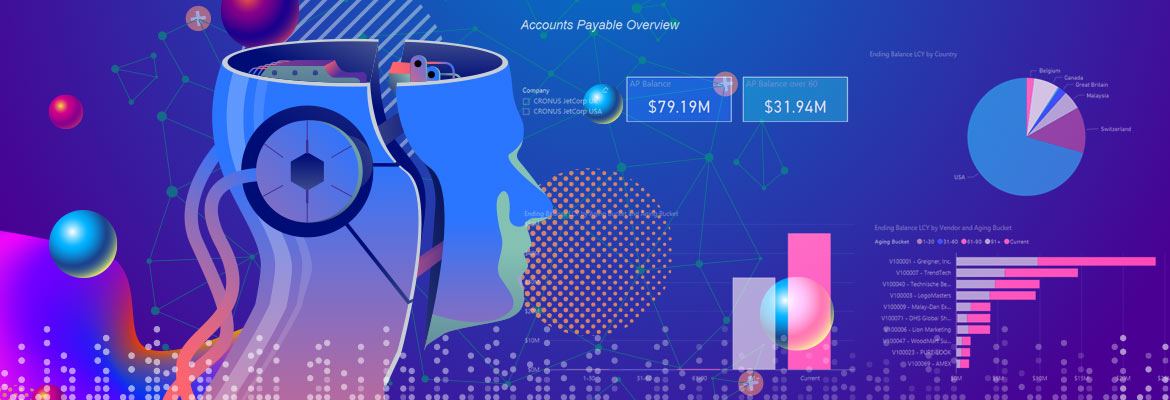PaymentsJournal: AI in Finance: The Predictions

Richard Sampson, SVP EMEA, insightsoftware
The term “AI” is being thrown around a lot lately, but realistically how will it change the world of finance?
Firstly, “AI” is an awfully broad term, so understanding how it slots into the wider automation picture is important. AI often includes—and works alongside—the optimisation of everyday processes. We all know how it is: Collecting and analysing thousands of data points is arduous, and anyone would welcome ways to make everything easier to save time and money.
AI is a longer way off than people think in terms of full-blown adoption. The transition will be gradual, as AI is only part of the story. It’s a story that takes us in search of ever greater efficiency and productivity gains. Think of it as trilogy and we’re only in book one. The beginning starts with reporting automation (in a bid to make productivity gains at month-end close and to compress planning cycles). As we make our way to the end book one, robotic process automation becomes the protagonist (automating and speeding-up data entry tasks). Finally, AI is introduced, beginning a whole new storyline that carries into book three.
Interestingly, according to a survey cited in Gartner’s Magic Quadrant for Cloud Financial Planning and Analysis Solutions, forty-six percent of respondents said predictive analytics is where they intended to invest the most money before 2021. The second ranked technology was robotic process automation (43%), followed by artificial intelligence/machine learning (35%).
Here are our predictions as the modern finance department looks to the future.
Automation impacts reporting
Anyone working in finance knows that manually dumping data into Excel and manipulating it is prone to errors, not to mention unbelievably time-intensive. In recent years, this process has been fully automated, making real-time data access possible throughout the month. Accountants can drill from summary data into balances, journals, or subledgers to investigate variances and fix reconciliation issues. Or, they can see the impact of a journal entry they post reflected immediately in their reports. Any CFO can pull reports quickly to make sound business recommendations to the C-suite. The productivity gains are huge, and we’re seeing the majority of finance teams reporting in this way, no matter the organisation size or ERP system.
We predict reporting automation will continue to gain huge ground inside organisations in the very near future.
Robotic process automation steps into the limelight
As reporting automation dominates the agenda, the story is given a new plotline, moving the conversation on from data automation to process automation in the guise of robotic process automation (RPA).
According to the IEEE Standards Association (IEEE SA), RPA refers to the use of a “preconfigured software instance that uses business rules and predefined activity choreography to complete the autonomous execution of a combination of processes, activities, transactions, and tasks in one or more unrelated software systems to deliver a result or service with human exception management.”
This may appear long-winded, but it very much reflects what’s starting to materialise in a finance team today.
RPA is very effective. Studies indicate it can reduce repetitive data entry tasks by 80 percent in accounts payable, financial close, and tax accounting. RPA is able to read data from one source and then automatically enter it into an ERP system. A financial or operational report is only as good as the data inside the ERP system. RPA can help quickly ensure that data is both accurate and exactly where it needs to be, leading to further productivity gains.
However, don’t mistake this type of tech for AI. RPA is only mimicking human behaviour, not “thinking” like a human. Nevertheless, RPA is a conduit to enabling AI in the future and will be increasingly adopted over the next five years.
The journey to intelligent automation begins
RPA is a stepping stone to something called “intelligent automation.” Intelligent automation is a combination of process-driven tasks (RPA) and data-driven tasks (AI).
AI understands the meaning of data, whereas RPA focuses purely on a process. Take invoices: That process is programmed to understand a specific way of working in strict parameters. If you introduce a new supplier, invoice template, different tax rates, or any new data point, RPA is flummoxed. You need AI to make sense of this new information and how to handle it by “thinking” for itself.
While finance has proven to be an early adopter of AI in comparison to other industries, AI as mainstream is still years down the road. That said, we predict all finance teams will engage with AI in some way within the next five years as they enter the next phase in their digital transformation journey towards intelligent automation. Reaching that goal of intelligent automation will not happen straight away, though. We’re still about 10 years away from that.
Financial controllers become analysts
We have focused heavily on the tech so far, but what about the people impact? You often hear “AI will steal our jobs,” so what does that mean for the world of finance? Well, it’s more of a skills adjustment. The role of financial controller no longer warrants collecting the right data to analyse, because reporting automation does that instead.
As a result, data extraction responsibilities are becoming more obsolete and analysis is taking centre stage. We are seeing some of the biggest companies in the world transitioning their controllers into analysts, sometimes called “citizen” data scientists. The modern controller is expected to spend more time analysing financial data and becoming a trusted advisor who makes recommendations to other parts of the business. As RPA and AI are adopted more and more, this will only increase. Organisations will need people who understand AI models and reasoning in order for the company to achieve the necessary productivity gains and insights to compete in a tech-driven world.
We predict more candidates will be hired for their knowledge of technology, while others will have to up-skill.
AI has already become highly popular due to the amount of data companies are dealing with. An increased demand for understanding data patterns has directly contributed to the growth in demand for AI, and the future of finance is going to be heavily influenced by AI’s ability to set the stage for increasing competitiveness.
This article originally appeared in PaymentsJournal on October 16, 2019






